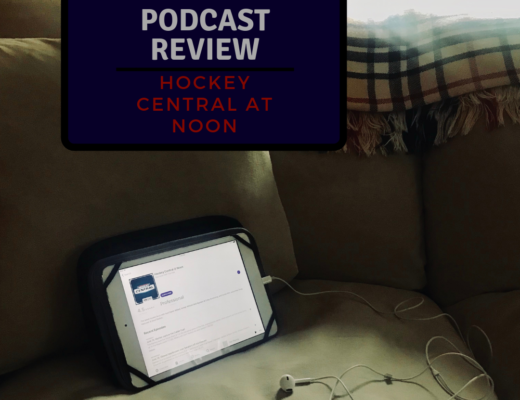This may be one of the only times I find it necessary to combine a journalist review with a podcast review in the same article. But given the circumstances, I think just an analysis is appropriate. Elliotte Friedman, insider and reporter at Sportsnet, has recently developed a podcast version of his well-known “31 Thoughts” column. The podcast features Friedman and colleague Jeff Marek as the two discuss the hottest stories around the NHL.
What Makes 31 Thoughts Unique?
Elliotte Friedman’s 31 Thoughts has grown to popularity in the hockey world largely due to the fact that Friedman himself has proven to be a knowledgeable insider that asks the questions people want to have answered. When Matt Duchene was traded from the Colorado Avalanche to the Ottawa Senators midway through the first period of a November game against the New York Islanders, Elliotte was there breaking the news. When the NHL trade deadline approaches each season, he is right there calling the shots with other top NHL insiders.
In addition to this insider knowledge, Friedman is an excellent reporter that has adapted well to the world of podcasting. His 31 Thoughts: The Podcast follows looser guidelines than his print column. The show is conversation based, and Marek generally runs the discussion, presenting questions and bringing up events for Friedman to weigh in on. The show focuses less on 31 individual thoughts and instead the main topic of conversation centers around the most pressing topics of any given week.
Friedman: Refreshingly Positive
Just recently Friedman and Marek were analyzing a trade between the Calgary Flames and Carolina Hurricanes that sent defenseman Dougie Hamilton to what is now his third NHL team in Raleigh. While there has been much criticism about Hamilton and his relationship with members of the Flames and even members of his previous team, the Boston Bruins, Friedman decided he would take a different route with his thoughts on the matter. He noted that he tries as much as possible not to be negative about players and organizations around the league.
Various radio personalities, journalists, and other members of the media often spend more time focusing on the negative aspects of a player or team when a trade happens under unfortunate circumstances. Friedman opted to take a different route and discuss what Hamilton would be able to bring to his new team in Carolina instead, without going into the side story involving personal issues away from the rink. I think this approach is well received in situations such as this one, and it brings the conversation back to what we all listened in for in the first place: hockey.
In Conclusion
Elliotte Friedman is one of the most well-known names around the professional hockey world that doesn’t include the athletes themselves. His knowledge and insight compete with the best of the best in the industry. One thing to take note of is that while Friedman does an excellent job of providing content involving all 31 NHL teams, by nature, working for a Canadian broadcasting network means that the seven teams north of the border take priority.
Overall the show has been a great one to listen to, and Elliotte’s column has garnered the respect and recognition it has around the hockey world for a reason. I would say that you should set some time aside for the podcast as episodes often reach over an hour in length, maybe best for a morning commute or while doing some Saturday yard work. The columns can be long as well which is expected considering the unique structure that has made them so popular.
If you’re going for informative over entertaining, this is right up your alley. Not much joking around, but you’ll definitely learn something every time you tune in.
You can find Elliotte Friedman’s writing along with the podcast at Sportsnet’s website by clicking here. You can follow him on twitter @FriedgeHNIC and Jeff Marek @JeffMarek





